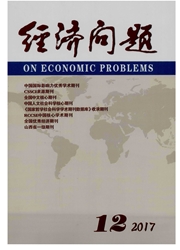

 中文摘要:
中文摘要:
在推进全国统一碳交易市场进程中,对当前7个碳交易试点价格运行的研究无疑对未来价格调控机制设计及排控企业碳资产管理具有重要意义。为从不同角度揭示中国碳交易价格的影响因素,运用多种计量方法对7个碳交易试点进行多维度实证研究。采用静态面板模型与动态面板VAR模型进行线性回归分析,研究发现:PMI、煤炭价格对碳价有正向影响,而石油价格、股市对碳价有负向影响,天气变化对碳价影响不显著;碳价波动的方差分解中PMI贡献最大,但对碳价影响通常要滞后60期即60天才较为显著。运用Bai-Perron方法对碳价波动进行非线性检验,发现7个碳交易试点价格波动均有断点存在且断点发生时间与履约到期时间相吻合,证明目前履约日是价格波动的重要影响因素。
 英文摘要:
英文摘要:
In the process of advancing the unified national carbon trading market,the research on the prices of the seven carbon trading pilots is very important for the future design of price regulation mechanism and asset management for enterprises. To reveal the factors that influence China's carbon trading prices from different angles,this paper uses a variety of methods to make multi- dimensional empirical study on seven carbon trading pilots.First,use static panel model and dynamic panel model( VAR) to make linear regression analysis. The result indicates that PMI and coal prices have a positive impact on the carbon price,oil price and stock market has a negative impact on the carbon price,while changes in the weather does not have significant effect on carbon price. Carbon price variance decomposition reveals that PMI makes the greatest contribution,however PMI's impact on the carbon trading price would be significant after sixty or more lags. Last,this paper uses Bai- Perron method to estimate whether breakpoints of carbon prices exist. Then we find that breakpoints exist and these breakpoints are complied with expiration coincide. This proves that compliance date is a key factor to carbon price fluctuations.
 同期刊论文项目
同期刊论文项目
 同项目期刊论文
同项目期刊论文
 期刊信息
期刊信息
